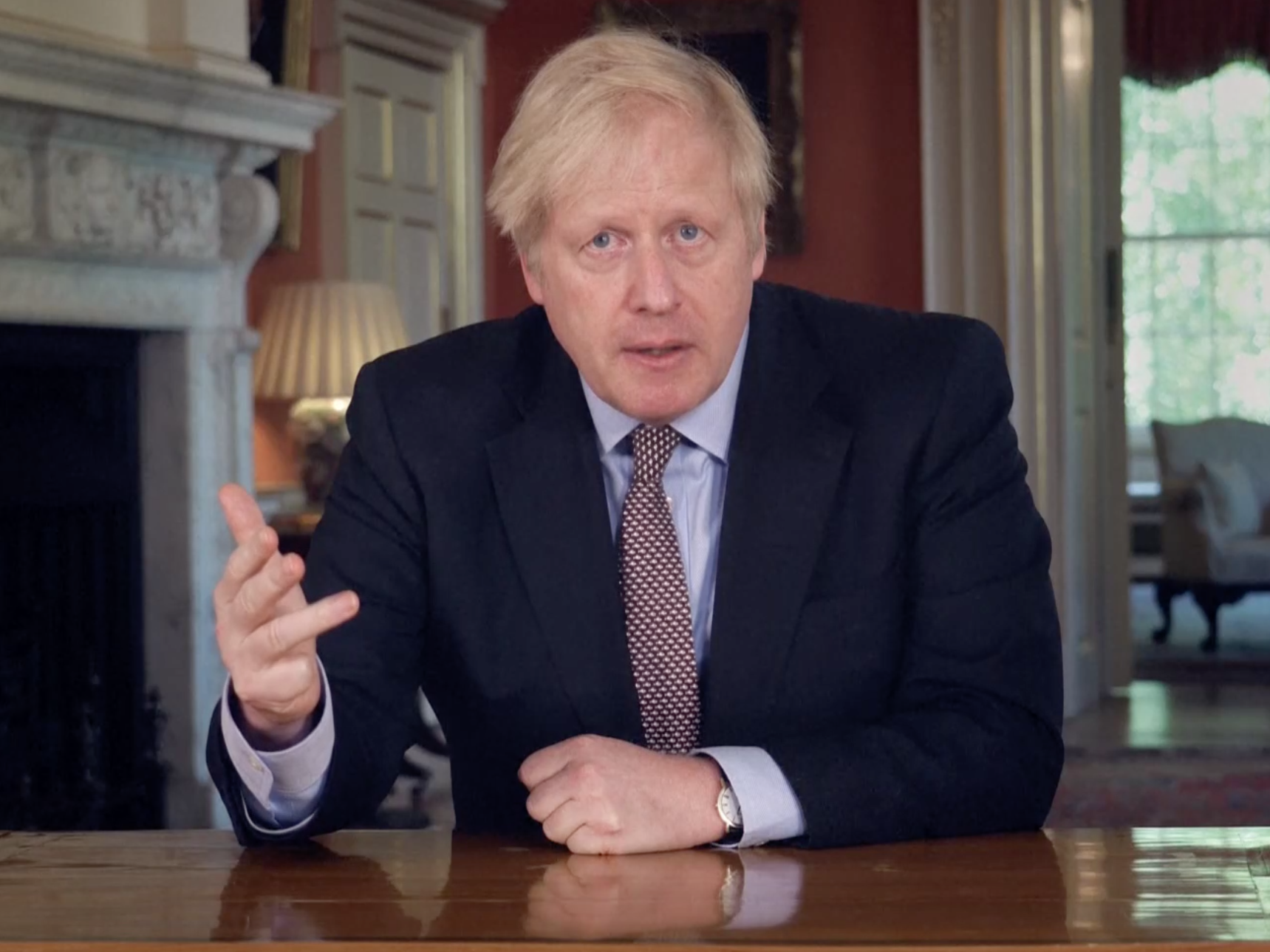Boris Johnson is in the worst place for a politician – he has tried to please everyone and risks pleasing no one
His statement doubled back on itself so many times it ended up closer to origami, writes John Rentoul


Usually in politics, the middle position is the place to be. Then both sides get part of what they want, and most people are reasonably happy. But in an emergency such as this, it is not so easy.
In his address to the nation about easing the coronavirus lockdown, Boris Johnson tried to strike a balance. Caught between those who fear that the lockdown is not strict enough and those who are now sure that it is safe to start getting the economy going again, he pleased no one.
His statement doubled back on itself so many times it was like origami. We must “save lives”, he said, “and yet”, he went on, “we must also recognise that this campaign against the virus has come at colossal cost to our way of life”.
It sounded contradictory because the prime minister is trying to do the impossible: to balance saving lives now against the damage to the economy that might cost lives in the future. These are the kinds of calculation that, in normal times, political leaders can pretend not to make.
The NHS has to balance lives against costs all the time, but it subcontracts the actual arithmetic to Nice, the National Institute for Health and Care Excellence, so that it is kept well away from a politician’s desk. Now the prime minister has to talk about it in public, and no wonder it is difficult.
Johnson said that people are fearful of the disease, and at the same time “fearful of what this long period of enforced inactivity will do to their livelihoods”. So his aim was to provide “the shape of a plan to address both fears”.
That meant more doubling back. “Although we have a plan, it is a conditional plan,” he said. The only definite change he announced was “a change of emphasis” rather than a change of policy. Instead of telling people to stay at home, the government is now saying: “Work from home if you can, but you should go to work if you can’t work from home.”
This always was the advice, but the “stay at home” slogan heavily emphasised the first part. Now the emphasis is on the second.
This has upset the cautious side of the argument. Nicola Sturgeon, the first minister of Scotland, complained that she had not been consulted and pointedly kept the “stay at home” slogan for her part of the UK.
Labour complains that the message is unclear, and lots of people claim not to know what “stay alert”, the new slogan, means.
What they mean is that they do not agree with the slight, conditional and tentative easing of the lockdown because they fear it will put lives at risk.
Yet Johnson has also infuriated many on the pro-economy side of the argument, including many in his cabinet. As Harry Cole of the Mail on Sunday reported today, some cabinet ministers are “raging” about the prime minister’s failure to consult them about the content of his address and the 50-page document to back it up.
Again, procedure is being used as an excuse for a political disagreement. Some of them may simply be annoyed about the lack of consultation – the phrase “Potemkin cabinet” has been used – but what many of them mean is that they want the lockdown to be lifted with a much greater sense of urgency.
They want to see shops selling so-called inessentials re-opening, and outdoor bars and restaurants if distancing can be observed.
The paradox is that Johnson has tried to follow the scientific advice, and to chart a middle course between the cautious and the more liberal minds. So far, it has served him well enough, with public opinion behind him. But public support is declining, and now the prime minister is beginning to look isolated, not just because he spoke to the nation from a large room in Downing Street with nothing in it.
He looked isolated in the House of Commons last week too, not just because of the distancing rules, but because he seemed vulnerable to Keir Starmer’s polite but dangerous criticisms.
Today’s statement tried to keep to that middle course, but the criticism from both sides is only going to grow stronger.
Join our commenting forum
Join thought-provoking conversations, follow other Independent readers and see their replies
Comments